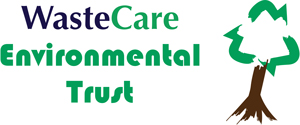The government is to planning to set legally binding recycling and waste targets under its Environment Bill to help the country “build back greener” once the Covid-19 pandemic has passed.
Waste management-related targets will look to increase resource productivity and cut the amount of residual waste and plastic pollution generated in the UK, in a bid to create a more sustainable and circular economy.
Commenting on the plans, environment secretary George Eustice said the targets would provide “some much needed clarity” for businesses.
“The targets we set under our landmark Environment Bill will be the driving force behind our bold action to protect and enhance our natural world, guaranteeing real and lasting progress on some of the biggest environmental issues facing us today,” he explained.
Mr Eustice added: “I hope these targets will provide some much-needed certainty to businesses and society, as we work together to build back better and greener.”
Waste management’s not the only subject on the government’s environmental agenda. It says it will introduce at least one long-term target in four key areas: air quality, resources and waste, biodiversity and water. These long-term goals will last for a minimum of 15 years and will be proposed by 31 October 2022.
Other priority areas and targets may be introduced later to make sure the government tackles the most pressing or newly emerging issues.
The long-term goals will relate to how people enjoy the natural environment and will be supported by interim targets to make sure the government stays on track. These will establish the government’s five-year agenda.
To set the targets, which will also apply future governments, the Department for Environment, Food and Rural Affairs (Defra) says it will use a robust, evidence-led process in collaboration with independent experts and stakeholders.
The targets will be objectively measurable, the government says. There will be a specific date by which time each target must be achieved.
To hold the government to account, a new environmental watchdog, the Office for Environmental Protection (OEP), will report each year on the progress made.
Once proposed targets are developed, businesses, communities and civil society will have an opportunity to share their views in response to a public consultation, expected to be held in early 2022.
Defra says the Environment Bill, which passed its second reading at the House of Commons on 26 February, will resume its passage through parliament to become law as soon as possible.
The Bill will transform how resources and waste are managed in the UK and gives ministers the relevant powers to make changes to legislation, Defra says.
The WasteCare Group’s Chairman, Peter Hunt expressed his support for the Government’s latest environmental initiative. “Over the last 10 years Britain has made tremendous progress in reducing waste and improving reuse and recycling. However, we still have a long way to go. We need the general public to embrace new habits, such as pre-sorting waste and using retailer and local authority takeback initiatives. For example, the UK is legally required to recycle 45% of portable batteries placed on the market(POB). 10 years after the regulations came in to force we only recycle 28% of portable batteries POB, despite there being over 50,000 battery collection points throughout the UK. Batteries represent less than 0.0001%. So clearly this is the tip of the iceberg. Clearly local authorities, retailers, producers, not to mention WM companies need to promote waste reduction reuse and recycling at every opportunity.”





